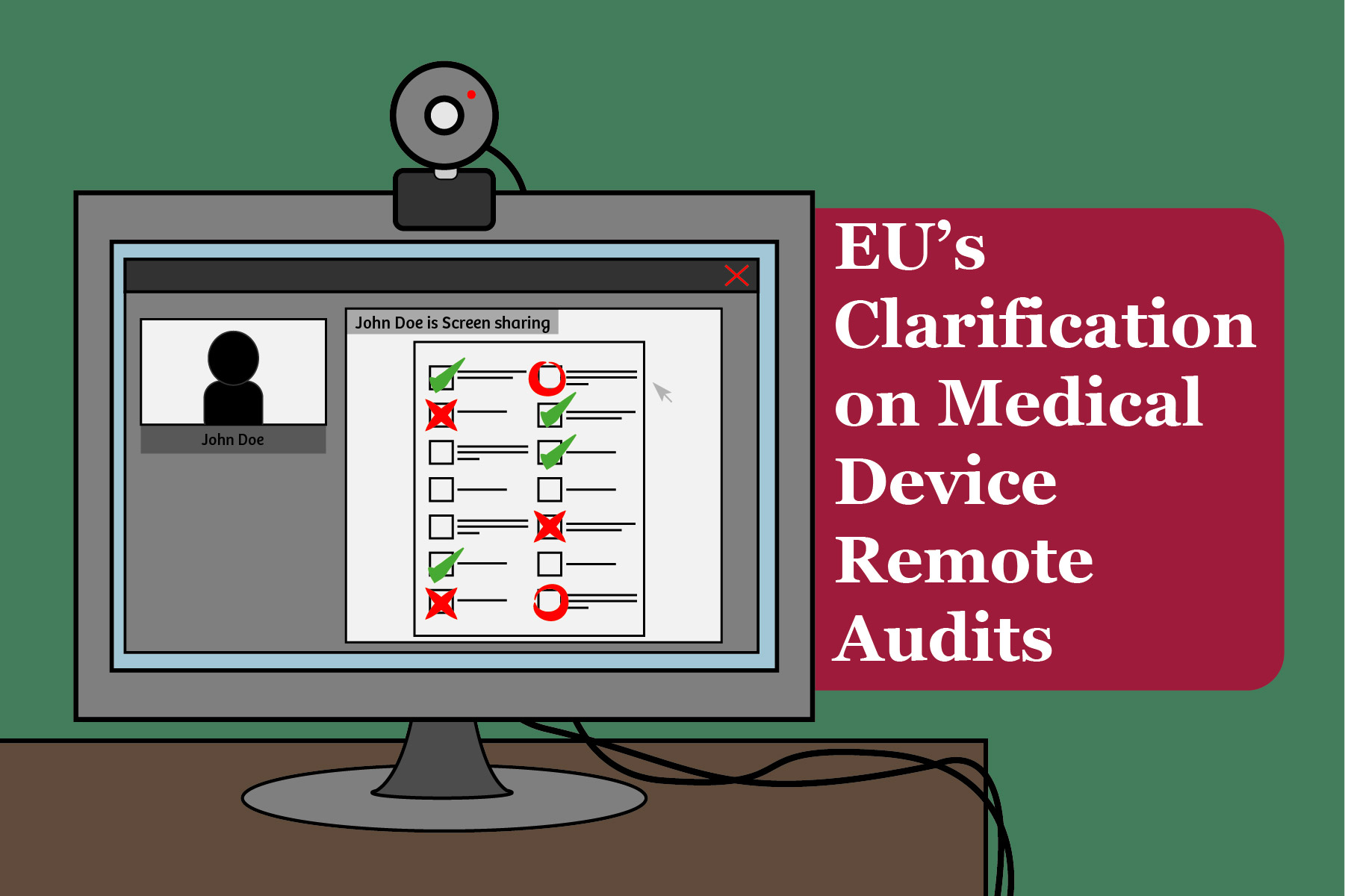The European Commission published a new guidance document that clarifies certain requirements originally outlined in MDCG 2020-4: Guidance on temporary extraordinary measures related to medical device Notified Body audits during COVID-19 quarantine orders and travel restrictions.1
The new guidance clarifies the scope of MDCG 2020-4 and further states that the guidelines are applicable to:1
- All devices requiring the involvement of a notified body, thus not limited to COVID-19 essential medical equipment.
- Initial certification audits under the directives, however, the notified body must perform a case-by-case assessment
- Audits to extend the certification under the directives, which also requires the notified body to do a case-by-case assessment
- Audits of existing and new critical subcontractors/suppliers under the Directives
Unannounced audits are not included in the scope of this guidance, however, a risk-based approach must be applied in recognizing the need to postpone such audits. 1
A list of devices clinically necessary for COVID-19 has been published on the EU Commission’s website and can be found here: https://ec.europa.eu/health/sites/health/files/md_sector/docs/md_list-covid19-essential-md.pdf however, the guidance document states that the MDCG 2020-4 does not just apply to products that are considered clinically necessary and that all devices requiring the involvement of a notified body are included in the scope.1
Additionally, the guidance document clarifies the use of ‘Most advanced’ information and communication technologies (ICT), stating that the MDCG does not require a particular ICT to be used in audits, however, the ICT must be effective in ensuring the necessary levels of security, integrity, confidentiality, and data protection.1
Furthermore, the technology should allow auditors to gather evidence and record it appropriately whenever necessary and retain copies of documentation submitted by the manufacturer for later review, as deemed appropriate to preserve the audit trail.1
COVID-19 has certainly brought some unique challenges to all industries and everybody is trying to do their bit. EMMA International is here to help with all your compliance needs in such difficult times! Give us a call today at +1 248-987-4497 or email us at info@emmainternational.com to know more.
1EU Commission (Dec 2020) MDCG 2020-17 Questions and Answers related to MDCG 2020-4 retrieved on 12/10/2020 from https://ec.europa.eu/health/sites/health/files/md_sector/docs/md_2020-17-guidance-mdcg-qa_en.pdf






